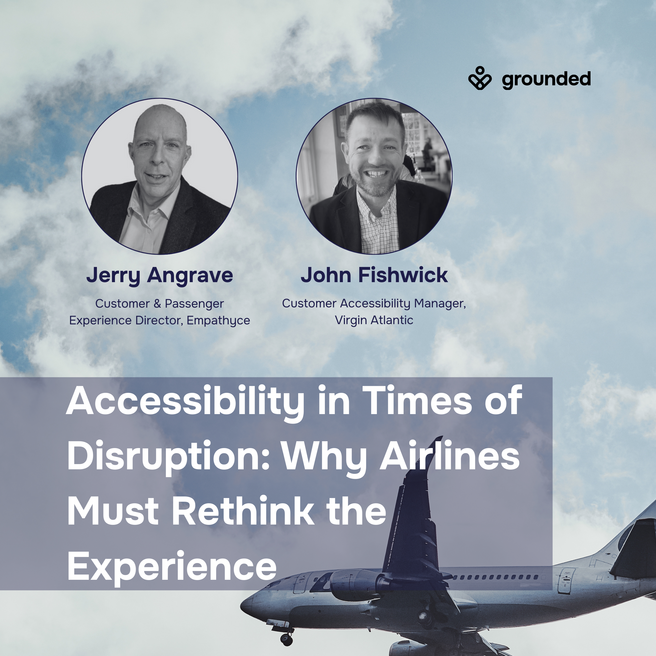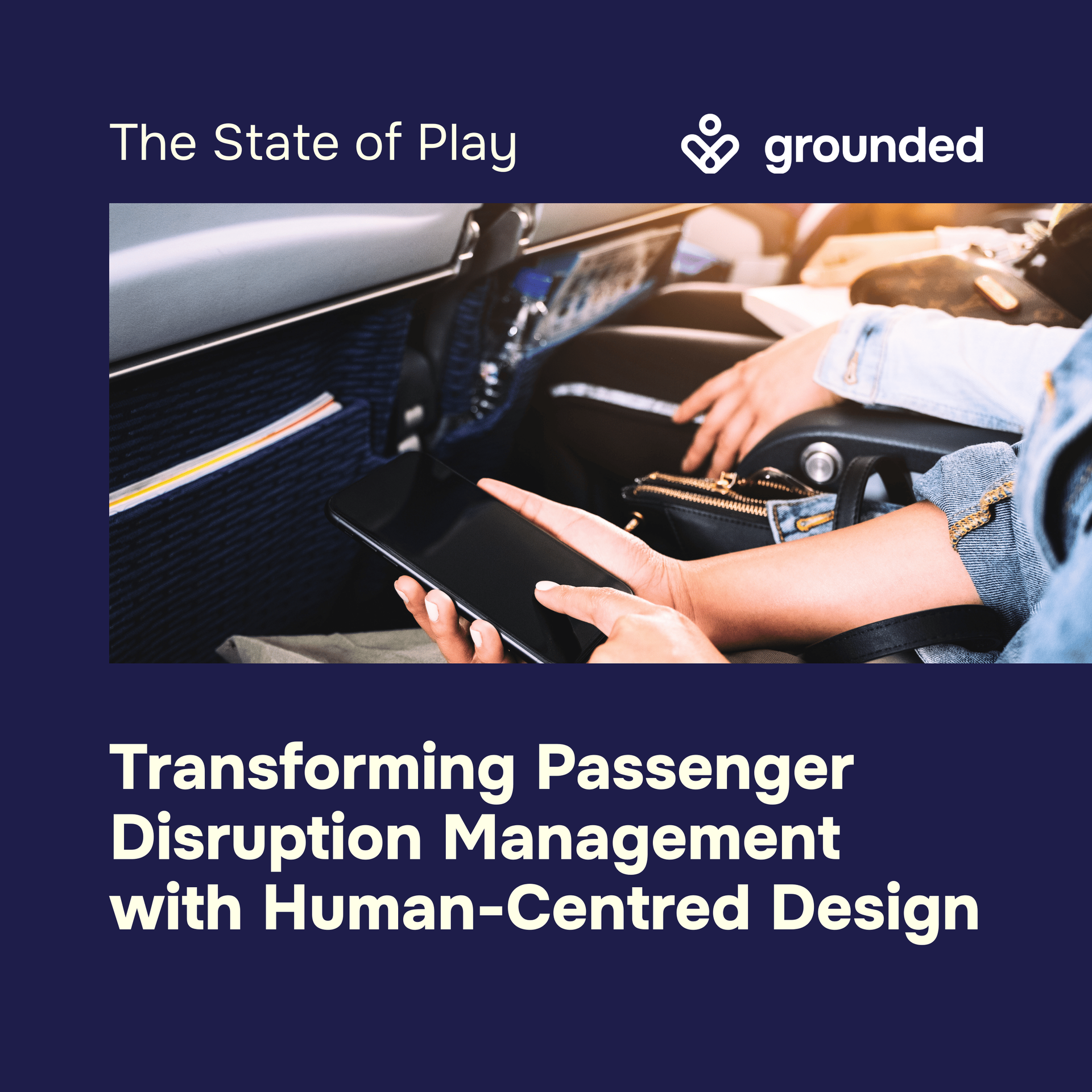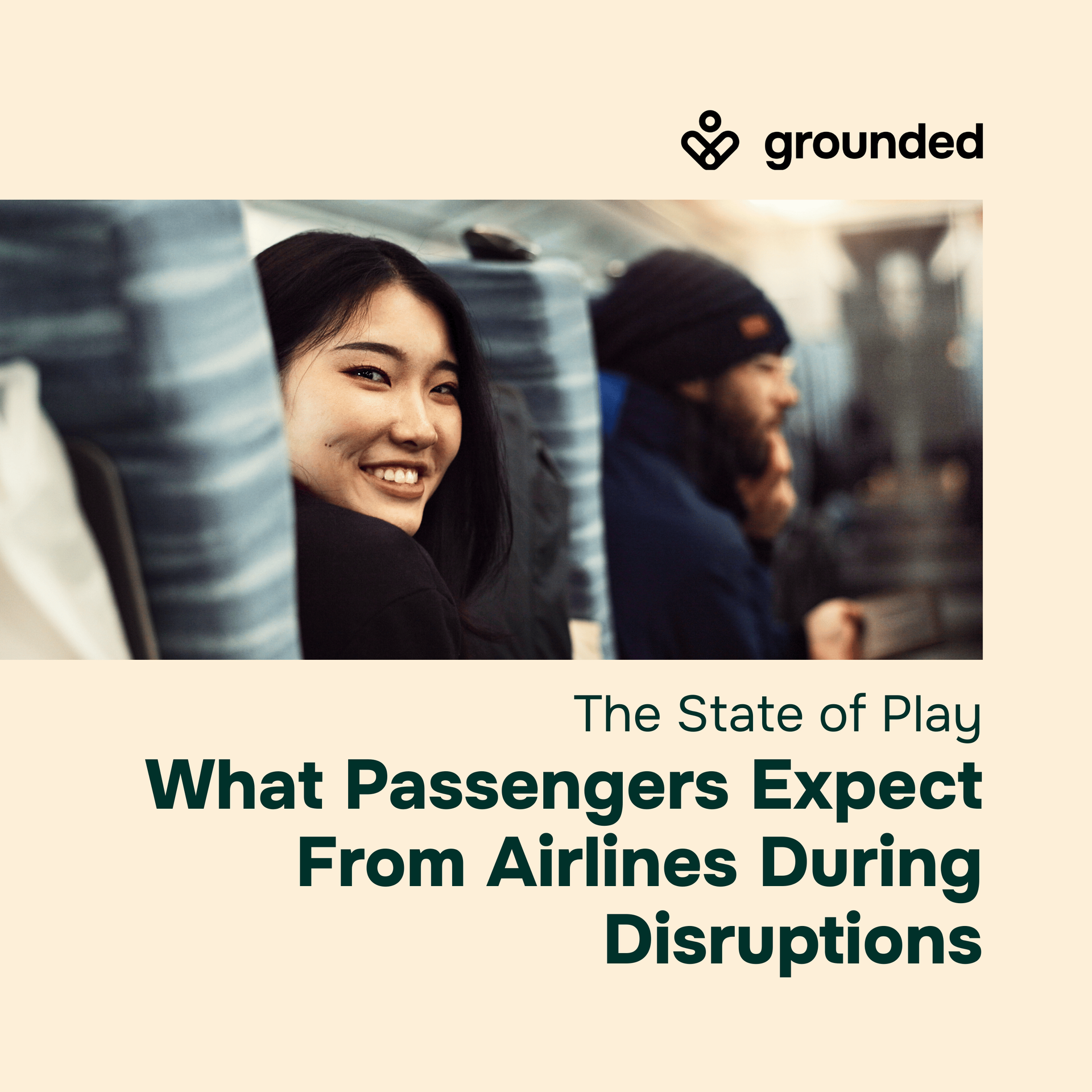
Proactive Communication and Seamless Self-Service Are Redefining Passenger Disruption Management
In today’s travel landscape, disruption is inevitable—but disempowerment doesn’t have to be. For airlines, irregular operations (IROPS) have long represented a high-stress flashpoint for both passengers and frontline staff. The real opportunity now is not just minimizing disruption but transforming how it’s handled. With the right tools, communication, and mindset, disruption can become a moment of trust-building rather than frustration.
This blog explores how leading airlines are adopting digital-first approaches, proactive service models, and human-centered design to give passengers control when it matters most.
What Passenger Empowerment Really Looks Like During Disruption
Empowering passengers goes beyond offering apologies—it’s about providing actionable choices and timely updates. Putting passengers “in the driving seat” means equipping them with clear, real-time communication and tools to resolve issues on their own terms.
As Esther Calvo, Client Director at Volotea described, “When a disruption occurs… you want to know everything and you want to have a solution. And you want to decide and you want to have control.”
That expectation is fast becoming a baseline—and airlines are rising to meet it.
Francesca Marshall, Sr. Manager of Customer Care at British Airways reinforces this shift toward choice and autonomy: “If the customer’s happy with an option they’ve been provided in disruption through automation, they don’t need to speak to us. But if we provide them a proactive link, we’re there for them.”
Self-service doesn’t replace human support—it complements it.
Lessons from Outside the Aviation Industry
From Uber to Amazon, modern digital experiences have raised the bar for customer service. These platforms prioritize proactive updates, intuitive navigation, and rapid resolution—all of which passengers now expect from airlines.
Francesca Marshall acknowledged this shift: “There’s so much more available today… that it’s almost put that pressure on a complex industry like aviation to kind of keep up.”
And forward-thinking carriers are responding by acquiring or building app-like disruption tools.
For example, Francesca Marshall shared a tangible step: “We launched our first form of automated delay messaging for customers delayed more than 30 minutes.” These are the kinds of app-like efficiencies passengers recognize and appreciate.
What’s Holding the Airline Industry Back?
Despite these advances, systemic challenges still limit full empowerment. Legacy systems, fragmented data, operational silos, and cultural resistance slow progress. Even well-meaning efforts are often hindered by complexity and outdated processes.
“It’s actually the moving goalpost of what the driving seat is… customer expectations have changed,” said Francesca Marshall. As those expectations evolve, agility becomes just as important as infrastructure.
Operational dependencies also remain an obstacle. Aley Larkin, Sr.Customer Recovery Strategist at Southwest pointed out, “We rely on the front line to code flights when there’s delays… we’re relying on that human to provide the accurate data.” Without accurate inputs, even the smartest systems can’t serve customers effectively.
Designing for Self-Service and Resilience
The most successful strategies combine proactive service with optional human support. Airlines are learning to anticipate needs through segmentation, automation, and real-time interventions—before frustration builds.
“Intercepting customers before they know they have an issue... essentially trying to offer a form of response to reduce that effort…” Francesca Marshall explained. This anticipatory approach mirrors the design logic behind leading digital apps: solve problems before they’re reported.
And as Aley emphasised, the human touch still matters: “We encourage self-service… but also make sure there's always a human available.” The key is flexibility—giving passengers options based on their comfort and context.
A New Standard for Disruption Care
Today’s disruption strategies are about more than damage control—they’re about trust. Giving passengers control, clarity, and compassion turns difficult moments into defining brand experiences.
As Francesca Marshall summed up: “Be proactive. Admit ownership... you’ll end up hopefully reducing that customer effort.”
By embracing a mindset of empowerment—through smarter systems, better communication, and authentic empathy—airlines can transform IROPS from a source of friction into a source of loyalty.
MEDIA


